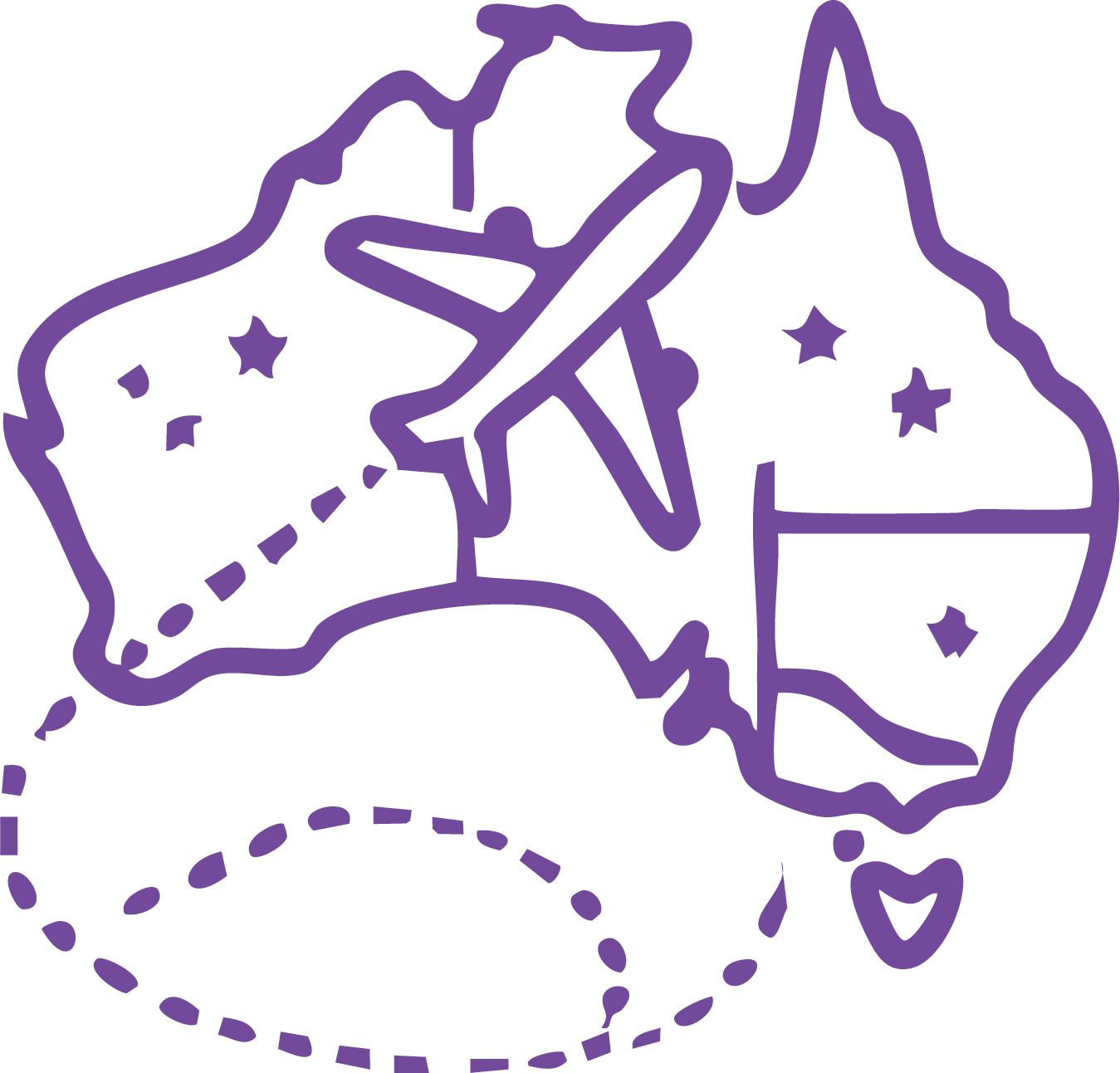
Bringing your pet to Australia? We’ve handled thousands of pet exports Down Under — let us help with yours.
Traveling abroad with your pet is already a complex process, but Australia takes it to another level with strict import and quarantine rules. That’s where we come in. At Tailwind, we have extensive experience helping pets make the journey to Australia safely and smoothly.
Below, we’ll walk you through exactly what to expect when bringing your pet to Australia, and how to make pet travel overseas as stress-free as possible.
Eligible Pets and Country Restrictions
Australia has both breed- and country-specific restrictions. Before moving forward with complex international pet travel plans, ensure your pet is eligible for travel from its country of export.
Eligible Pets
Australia only allows the import of pet cats and dogs, not exotic animals. From there, certain breeds, including crossbreeds, are banned from entry.
Banned dog breeds and mixes include:
- Japanese Tosa
- American Pit Bull Terrier
- Dogo Argentino
- Fila Brasileiro
- Presa Canario
- Any dogs derived from non-domestic species like the wolf (e.g., Czechoslovakian Wolfdog, Saarloos Wolfdog, Kunming Dog, Lupo Italiano)
Banned cat breeds and hybrids include:
- Savannah cats (domestic cat crossed with a serval)
- Safari cats (domestic cat crossed with a Geoffrey’s cat)
- Chausie cats (domestic cat crossed with a jungle cat)
- Bengal cats (domestic cat crossed with a leopard cat)
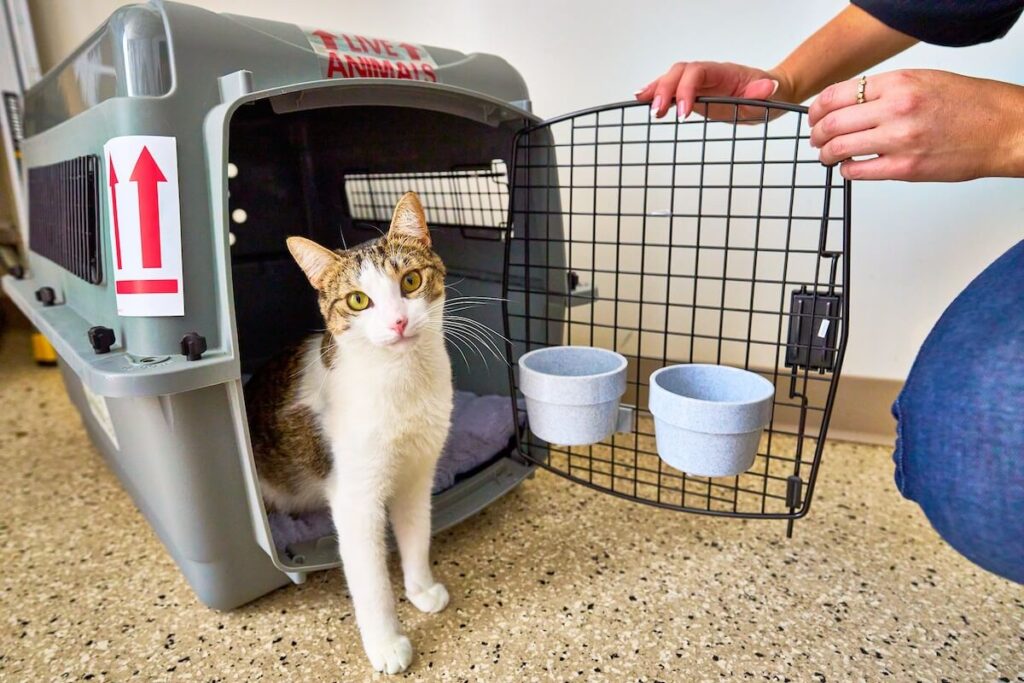
Dogs and cats should not be more than 30 days pregnant or nursing puppies or kittens at the time of travel. Australia doesn’t recommend importing sick or very old animals, although it’s not expressly prohibited. If you’re traveling with an older dog or cat, talk to your vet about the risks involved with an international trip.
Airlines may also enforce their own breed policies when shipping pets to Australia. Qantas, our preferred carrier for flights to Australia, requires that all brachycephalic pets, or snub-nosed breeds, be booked through an approved pet travel specialist.
Approved Countries
Australia only allows the import of pets from approved countries and territories. Approved countries fall into 3 different groups based on the rabies risk in that country.
Group 1 areas are the lowest-risk, rabies-free areas. New Zealand, Cocos (Keeling) Islands, and Norfolk Island are the only 3 on the list. Pets arriving from Group 1 countries enjoy the most relaxed import conditions, typically with no import permit or quarantine required.
Group 2 countries/territories, like Hawaii, are also rabies-free, but pets from these areas must still obtain an import permit and meet standard health, treatment, and quarantine requirements. Group 3 countries, like the United States, Spain, France, and the United Kingdom, require pets to meet additional vaccination requirements.
Approved countries are available from Australia’s Department of Agriculture, Fisheries and Forestry (DAFF).Pets traveling from countries not on these lists must reside in an approved country for 6 months before applying for an Australian import permit. There are no exceptions for importing pets from a non-approved country.
Planning an international flight for your pet? We can help.
Microchip and Vaccinations
Your traveling cat or dog must have an ISO-compliant microchip implanted before receiving their rabies vaccination and before any rabies antibody testing can be done.
Microchip
Your pet must have an ISO-compliant microchip, typically with a 10- or 15-digit number. Avoid microchips beginning with 999, as these aren’t unique and won’t meet Australia’s ID requirements.
Microchip number information should match across all import documents, including lab reports, vaccination records, and health certificates. Any discrepancies or an inability to scan your pet’s microchip could delay import or quarantine release.
A government-approved veterinarian must scan your pet’s microchip at every veterinary visit during the export preparation process, and before any pre-export blood sampling.
Vaccinations
Pets traveling from Group 3 countries must have a rabies vaccination valid up to the date of export. All pets must be vaccinated against leptospirosis or test negative for the bacteria as part of their final health checks.
If the rabies vaccination expires at any point, your pet becomes ineligible for export. You’ll need to revaccinate, collect a new blood sample for another titre, and restart the mandatory 180-day waiting period.
The vaccine itself must be administered by a government-approved veterinarian. Your pet should be at least 84 days old at the time of vaccination. Either a 1-year or 3-year rabies vaccine is fine as long as it’s administered according to the manufacturer’s directions.
Dogs from the U.S. and South Korea must also be fully vaccinated against canine influenza (CIV). Dogs coming from Canada can choose to undergo isolation and testing for CIV in the 7 days before arriving in Australia.
Australia also recommends the following vaccines for dogs:
- Distemper
- Hepatitis
- Parvovirus
- Canine parainfluenza
- Bordetella bronchiseptica
These vaccines are recommended for cats:
- Feline enteritis (feline panleukopenia/distemper
- Feline viral rhinotracheitis
- Feline calicivirus
While these vaccines are only recommended, we suggest pet owners follow these vaccine recommendations to protect pets spending time in quarantine facilities before and after air travel.
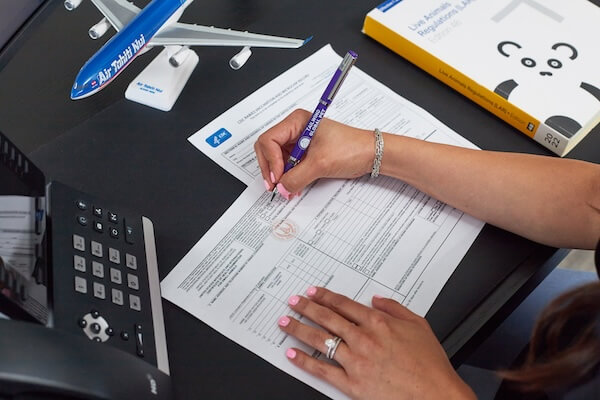
Australian ID Verification
Australia’s pet identity verification process for pets arriving from Group 3 countries can shorten their quarantine stay from 30 days to 10 days if completed correctly. The process is optional but highly recommended.
The process must be completed before your pet’s RNATT. Pets from the U.S. need to visit 2 different USDA-accredited veterinarians at two separate clinics. Each vet will:
- Scan your pet’s microchip and take a clear color photo showing the microchip number.
- Complete a pet identity declaration in the Veterinary Export Health Certification System (VEHCS).
The USDA reviews and endorses both declarations electronically. Once approved, the USDA sends your pet’s completed identity declaration certificate directly to Australia’s DAFF.
You can find accredited vets on the USDA’s database, but it can be challenging to keep track of paperwork moving from one office to the next. Professional pet transport companies like Tailwind can help you manage each step to make sure nothing is missed.
Blood Tests and Treatments
In Beyond the rabies vaccine, Australia requires several blood tests and parasite treatments depending on your pet’s health status, sterilization, and travel history.
Rabies Neutralising Antibody Titre Test (RNATT)
The RNATT confirms that your pet has developed sufficient immunity against rabies. About 3-4 weeks after vaccination, and ideally after you’ve completed the ID verification process, your vet will draw a blood sample and send it to an approved laboratory for testing.
Once the lab receives the sample, the 180-day waiting period begins. Your pet must wait the full 180 days before they can enter Australia, assuming the result meets the required antibody level (≥ 0.5 IU/mL).
Other Tests and Treatments
Dogs traveling to Australia will need the following additional tests within 45 days of departure:
- Leptospirosis test (if not vaccinated)
- Brucella canis test (for unspayed or unneutered dogs)
- Leishmaniasis test
All pets should receive an external parasite treatment for ticks and fleas and an internal parasite treatment (nematodes and cestodes) before export. Dogs that have visited Africa will also need to be treated with imidocarb dipropionate, a drug used for parasitic infections.
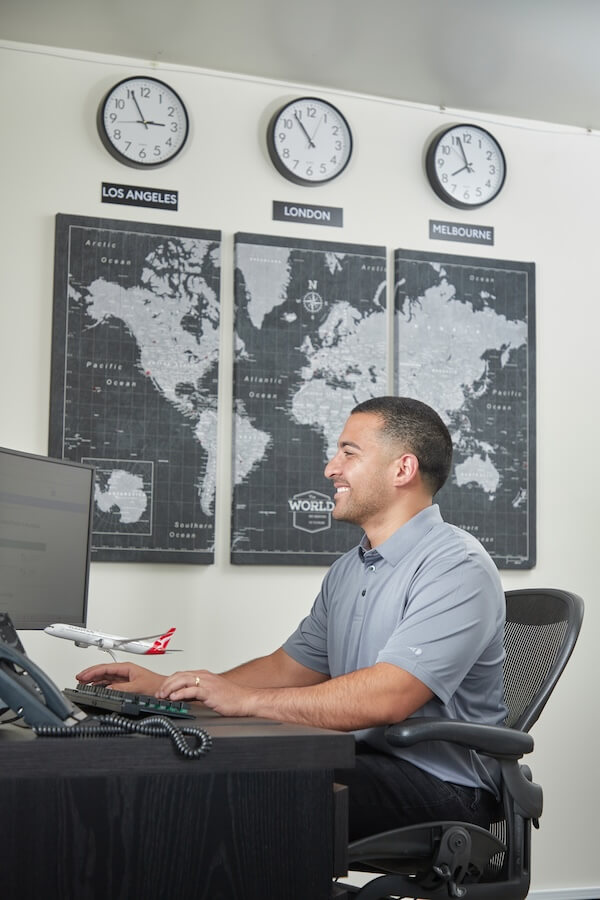
Import Documents
All pets arriving from Group 2 or Group 3 countries fly with an import permit as part of their entry requirements. Applications are completed online on the Biosecurity Import Conditions System (BICON) portal. While permits can be processed relatively quickly, DAFF advises giving the process up to 4 months to ensure everything is approved before travel.
Group 3 pets also need a veterinary health certificate issued by a government-accredited veterinarian and endorsed by a government vet in the exporting country. For U.S. pets, this certificate is generally prepared and submitted through the VEHCS by a USDA-accredited vet.
The certificate must be completed within five days of export and confirms your pet meets all vaccination, testing, and parasite treatment requirements. For pets coming from the U.S., this includes proof of a valid rabies vaccination, RNATT declarations, lab results, and parasite treatment records.
Pets coming from Group 2 areas have a slightly simpler process. They still need a veterinary health certificate and a valid import permit, but they’re not required to document RNATT testing.
Airline Details
Qantas Airlines is the only direct carrier for pets traveling from North America to Australia. Flights run from Los Angeles to Melbourne, the only airport in Australia that accepts pet imports. (This is an important point, as many travelers assume they can fly into Sydney.)
Pet-friendly Qantas flights also run seasonally from Dallas-Fort Worth International and John F. Kennedy International, depending on temperature restrictions.
For pets flying out of Los Angeles (LAX), flights depart in the evening and arrive in the morning about 16 hours later to avoid potential temperature concerns with midday travel.
We often work with Qantas as our preferred carrier for pets flying into Melbourne from the U.S. The airline’s itineraries and live animal transport protocols are ideal.
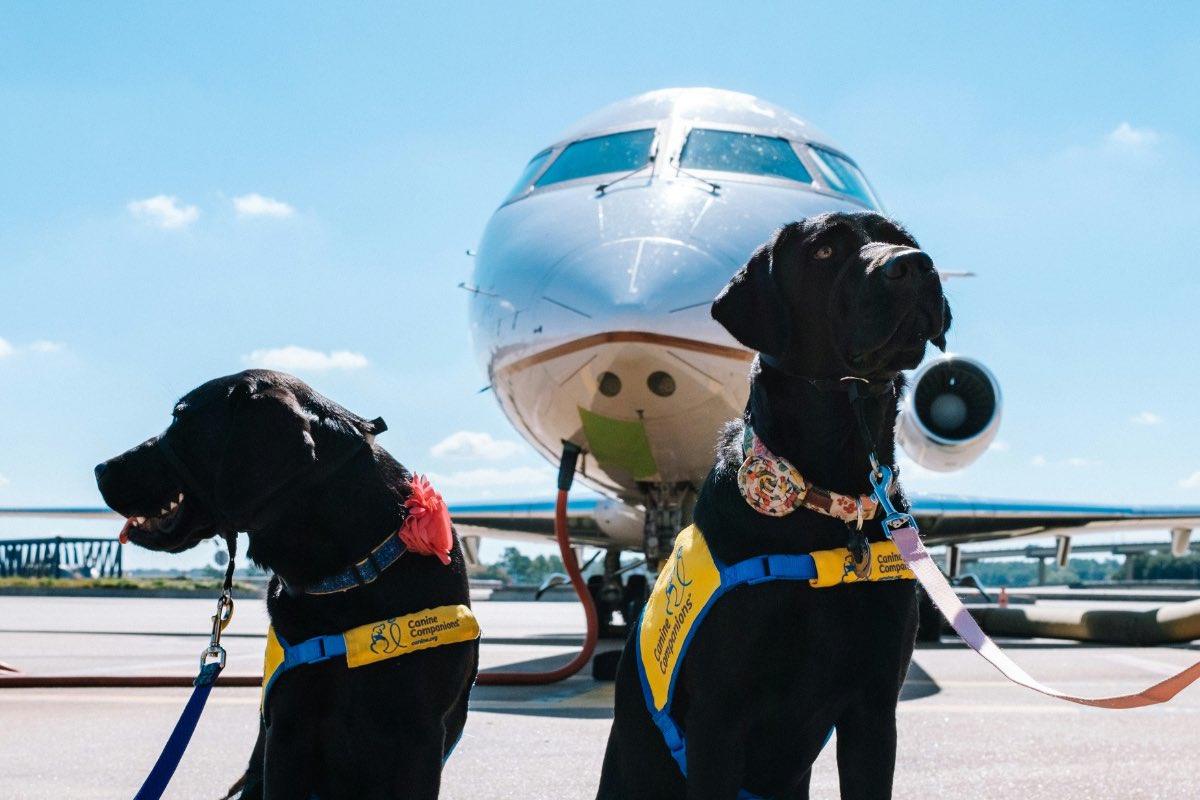

Quarantine
All pets entering Australia from Group 2 or 3 countries must complete a quarantine stay at the government-run Post-Entry Quarantine Facility in Mickleham, near Melbourne. Depending on your pet’s paperwork, they’ll stay for 10 or 30 days. Pet owners are responsible for quarantine costs.
The shorter 10-day quarantine is available to Group 2 pets and Group 3 pets whose identity verification process has been fully and correctly completed before travel. If the process is skipped, done out of order, or delayed, Group 3 pets will need to complete the full 30-day stay instead.
The Mickleham facility is spacious, modern, and designed to meet animal welfare standards. It’s normal not to receive updates during your pet’s stay. No news is good news after the drop-off. You’ll only be contacted if officials need to discuss a concern or when it’s time to arrange pickup.
How Tailwind Can Help
At Tailwind, we guide pet owners through every step of importing animals into Australia and navigating complex pet travel itineraries worldwide.
From domestic pet transport to multi-leg international travel, our pet travel experts ensure both pets and their owners are fully supported door-to-door. We’re available 24/7, especially when the pet travel process starts to feel overwhelming.
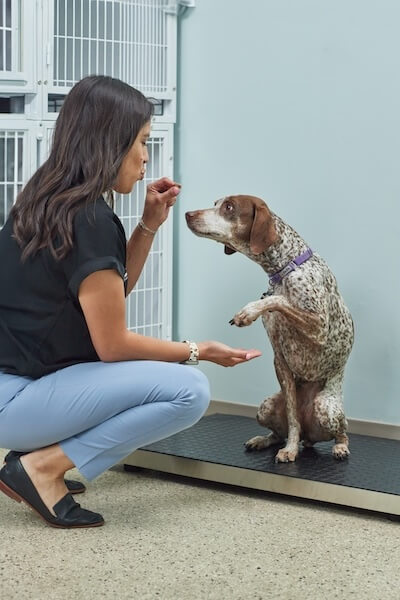
Ready to get started? Each pet relocation situation is different, so to get an idea of the costs involved, fill out a quote request.
What Our Clients Have to Say

“I recently used TailWind Global Pet to relocate my two Siamese cats from Las Vegas to Australia, primarily using their expertise to handle the Qantas transport and PEQ facility in Melbourne.
While I didn’t use their full relocation service as I was living in Vegas and not LA, where they are based, I managed most of the blood work, rabies shots, and parasite treatments locally. I worked closely with Brady throughout the 9-month process to ensure my veterinary assistant and vet were following the correct protocols.
Brady has a wealth of experience and excellent connections within the USDA, which made the process much smoother and gave me peace of mind.
Looking back, I wish I had used TailWind’s full-service experience—it would have been faster and even more cost-effective.
If you’re considering saving money by handling it yourself, I strongly advise against it.
Pet relocation involves a lot of precise requirements, and a professional company like TailWind prevents mistakes and reduces stress.
Brady and Cara, the TailWind team, are knowledgeable, reliable, and truly make a challenging process manageable. Highly recommend!”
– Tanya P.

“Trying to move two dogs to Australia is stressful, but Cara at Tailwind Global made my life so much easier, walking me through every step of the process, fixing unexpected problems (usually with tests or vets misunderstanding something) quickly, and communicating in a timely manner. Everyone here truly cares about their customers’ pets and is extremely knowledgeable. I cannot recommend Tailwind Global enough after this experience, and if needed will use them again without question.”
– Ryan S.
“I was just reunited with our family dog here in Australia after a long journey from New Jersey, and I am so grateful to the Tailwind Global Pet team for their guidance. They were there every step of the way, explaining the complicated procedures clearly and in plain English (for example, I now know what “RNATT” means). They also were very responsive and excellent about coordinating with our local vet. I have high-level executive functioning skills, but I know that I could not have done it without TGP. Thank you! Brodie is now resting peacefully at his new home.”
– Margaret L.
